教学资源
>
名家讲堂
TED Malcolm Gladwell: The strange tale of the Norden bombsight
About the Speaker:
Detective of fads and emerging subcultures, chronicler of jobs-you-never-knew-existed, Malcolm Gladwell's work is toppling the popular understanding of bias, crime, food, marketing, race, consumers and intelligence.
About This Talk
Master storyteller Malcolm Gladwell tells the tale of the Norden bombsight, a groundbreaking piece of World War II technology with a deeply unexpected result.
Detective of fads and emerging subcultures, chronicler of jobs-you-never-knew-existed, Malcolm Gladwell's work is toppling the popular understanding of bias, crime, food, marketing, race, consumers and intelligence.
About This Talk
Master storyteller Malcolm Gladwell tells the tale of the Norden bombsight, a groundbreaking piece of World War II technology with a deeply unexpected result.
TED Todd Kuiken: A prosthetic arm that "feels"
About the Speaker:
A doctor and engineer, Todd Kuiken builds new prosthetics that connect with the human nervous system.
About This Talk
Physiatrist and engineer Todd Kuiken is building a prosthetic arm that connects with the human nervous system -- improving motion, control and even feeling. Onstage, patient Amanda Kitts helps demonstrate this next-gen robotic arm.
A doctor and engineer, Todd Kuiken builds new prosthetics that connect with the human nervous system.
About This Talk
Physiatrist and engineer Todd Kuiken is building a prosthetic arm that connects with the human nervous system -- improving motion, control and even feeling. Onstage, patient Amanda Kitts helps demonstrate this next-gen robotic arm.
TED Alison Gopnik: What do babies think?
About the Speaker:
Alison Gopnik takes us into the fascinating minds of babies and children, and shows us how much we understand before we even realize we do.
About This Talk
"Babies and young children are like the R&D division of the human species," says psychologist Alison Gopnik. Her research explores the sophisticated intelligence-gathering and decision-making that babies are really doing when they play.
Alison Gopnik takes us into the fascinating minds of babies and children, and shows us how much we understand before we even realize we do.
About This Talk
"Babies and young children are like the R&D division of the human species," says psychologist Alison Gopnik. Her research explores the sophisticated intelligence-gathering and decision-making that babies are really doing when they play.
TED Yang Lan: The generation that's remaking China
About the Speaker:
Yang Lan is often called “the Oprah of China.” The chair of a multiplatform business empire, Yang is pioneering more-open means of communication in the communist nation.
About This Talk
Yang Lan, a journalist and entrepreneur who's been called "the Oprah of China," offers insight into the next generation of young Chinese citizens -- urban, connected (via microblogs) and alert to injustice.
Yang Lan is often called “the Oprah of China.” The chair of a multiplatform business empire, Yang is pioneering more-open means of communication in the communist nation.
About This Talk
Yang Lan, a journalist and entrepreneur who's been called "the Oprah of China," offers insight into the next generation of young Chinese citizens -- urban, connected (via microblogs) and alert to injustice.
TED Niall Ferguson: The 6 killer apps of prosperity
About the Speaker:
History is a curious thing, and Niall Ferguson investigates not only what happened but why. (Hint: Politics and money explain a lot.)
About This Talk
Over the past few centuries, Western cultures have been very good at creating general prosperity for themselves. Historian Niall Ferguson asks: Why the West, and less so the rest? He suggests half a dozen big ideas from Western culture -- call them the 6 killer apps -- that promote wealth, stability and innovation. And in this new century, he says, these apps are all shareable.
History is a curious thing, and Niall Ferguson investigates not only what happened but why. (Hint: Politics and money explain a lot.)
About This Talk
Over the past few centuries, Western cultures have been very good at creating general prosperity for themselves. Historian Niall Ferguson asks: Why the West, and less so the rest? He suggests half a dozen big ideas from Western culture -- call them the 6 killer apps -- that promote wealth, stability and innovation. And in this new century, he says, these apps are all shareable.
TED Richard Resnick: Welcome to the genomic revolution
About the Speaker:
Richard Resnick is on the front lines of the business of genomes, as CEO of GenomeQuest, a maker of genomic software.
About This Talk
In this accessible talk from TEDxBoston, Richard Resnick shows how cheap and fast genome sequencing is about to turn health care (and insurance, and politics) upside down.
Richard Resnick is on the front lines of the business of genomes, as CEO of GenomeQuest, a maker of genomic software.
About This Talk
In this accessible talk from TEDxBoston, Richard Resnick shows how cheap and fast genome sequencing is about to turn health care (and insurance, and politics) upside down.
TED Raghava KK: Shake up your story
About the Speaker:
Raghava KK's paintings and drawings use cartoonish shapes and colors to examine the body, society, our world.
About This Talk
Artist Raghava KK demos his new children's book for iPad with a fun feature: when you shake it, the story -- and your perspective -- changes. In this charming short talk, he invites all of us to shake up our perspective a little bit.
Raghava KK's paintings and drawings use cartoonish shapes and colors to examine the body, society, our world.
About This Talk
Artist Raghava KK demos his new children's book for iPad with a fun feature: when you shake it, the story -- and your perspective -- changes. In this charming short talk, he invites all of us to shake up our perspective a little bit.
TED Marco Tempest: The magic of truth and lies (and iPods)
About the Speaker:
A magician and illusionist for the 21st century, Marco Tempest blends cutting-edge technology with the flair and showmanship of Houdini.
About This Talk
Using three iPods like magical props, Marco Tempest spins a clever, surprisingly heartfelt meditation on truth and lies, art and emotion.
A magician and illusionist for the 21st century, Marco Tempest blends cutting-edge technology with the flair and showmanship of Houdini.
About This Talk
Using three iPods like magical props, Marco Tempest spins a clever, surprisingly heartfelt meditation on truth and lies, art and emotion.
TED Alex Steffen: The shareable future of cities
About the Speaker:
Alex Steffen explores our planet's future, telling powerful, inspiring stories about the hard choices facing humanity ... and our opportunity to create a much better tomorrow.
About This Talk
How can cities help save the future? Alex Steffen shows some cool neighborhood-based green projects that expand our access to things we want and need -- while reducing the time we spend in cars.
Alex Steffen explores our planet's future, telling powerful, inspiring stories about the hard choices facing humanity ... and our opportunity to create a much better tomorrow.
About This Talk
How can cities help save the future? Alex Steffen shows some cool neighborhood-based green projects that expand our access to things we want and need -- while reducing the time we spend in cars.
TED Philip Zimbardo: The demise of guys?
About the Speaker:
Philip Zimbardo was the leader of the notorious 1971 Stanford Prison Experiment -- and an expert witness at Abu Ghraib. His book The Lucifer Effect explores the nature of evil; now, in his new work, he studies the nature of heroism.
About This Talk
Psychologist Philip Zimbardo asks, "Why are boys struggling?" He shares some stats (lower graduation rates, greater worries about intimacy and relationships) and suggests a few reasons -- and challenges the TED community to think about solutions.
Philip Zimbardo was the leader of the notorious 1971 Stanford Prison Experiment -- and an expert witness at Abu Ghraib. His book The Lucifer Effect explores the nature of evil; now, in his new work, he studies the nature of heroism.
About This Talk
Psychologist Philip Zimbardo asks, "Why are boys struggling?" He shares some stats (lower graduation rates, greater worries about intimacy and relationships) and suggests a few reasons -- and challenges the TED community to think about solutions.
TED Mark Pagel: How language transformed humanity
About the Speaker:
Using biological evolution as a template, Mark Pagel wonders how languages evolve.
About This Talk
Biologist Mark Pagel shares an intriguing theory about why humans evolved our complex system of language. He suggests that language is a piece of "social technology" that allowed early human tribes to access a powerful new tool: cooperation.
Using biological evolution as a template, Mark Pagel wonders how languages evolve.
About This Talk
Biologist Mark Pagel shares an intriguing theory about why humans evolved our complex system of language. He suggests that language is a piece of "social technology" that allowed early human tribes to access a powerful new tool: cooperation.
TED Harald Haas: Wireless data from every light bulb
About the Speaker:
Harald Haas is the pioneer behind a new type of light bulb that can communicate as well as illuminate – access the Internet using light instead of radio waves.
About This Talk
What if every light bulb in the world could also transmit data? At TEDGlobal, Harald Haas demonstrates, for the first time, a device that could do exactly that. By flickering the light from a single LED, a change too quick for the human eye to detect, he can transmit far more data than a cellular tower -- and do it in a way that's more efficient, secure and widespread.
Harald Haas is the pioneer behind a new type of light bulb that can communicate as well as illuminate – access the Internet using light instead of radio waves.
About This Talk
What if every light bulb in the world could also transmit data? At TEDGlobal, Harald Haas demonstrates, for the first time, a device that could do exactly that. By flickering the light from a single LED, a change too quick for the human eye to detect, he can transmit far more data than a cellular tower -- and do it in a way that's more efficient, secure and widespread.
TED Paul Bloom: The origins of pleasure
About the Speaker:
Paul Bloom studies our common-sense understanding of the world -- how we know what we know, why we like what we like.
About This Talk
Why do we like an original painting better than a forgery? Psychologist Paul Bloom argues that human beings are essentialists -- that our beliefs about the history of an object change how we experience it, not simply as an illusion, but as a deep feature of what pleasure (and pain) is.
Paul Bloom studies our common-sense understanding of the world -- how we know what we know, why we like what we like.
About This Talk
Why do we like an original painting better than a forgery? Psychologist Paul Bloom argues that human beings are essentialists -- that our beliefs about the history of an object change how we experience it, not simply as an illusion, but as a deep feature of what pleasure (and pain) is.
TED A robot that flies like a bird
About the Speaker:
Markus Fischer led the team at Festo that developed the first ultralight artificial bird capable of flying like a real bird.
About This Talk
Plenty of robots can fly -- but none can fly like a real bird. That is, until Markus Fischer and his team at Festo built SmartBird, a large, lightweight robot, modeled on a seagull, that flies by flapping its wings. A soaring demo fresh from TEDGlobal 2011.
Markus Fischer led the team at Festo that developed the first ultralight artificial bird capable of flying like a real bird.
About This Talk
Plenty of robots can fly -- but none can fly like a real bird. That is, until Markus Fischer and his team at Festo built SmartBird, a large, lightweight robot, modeled on a seagull, that flies by flapping its wings. A soaring demo fresh from TEDGlobal 2011.
TED Nathan Myhrvold: Cooking as never seen before
About the Speaker:
Nathan Myhrvold is a professional jack-of-all-trades. After leaving Microsoft in 1999, he's been a world barbecue champion, a wildlife photographer, a chef, a contributor to SETI, and a volcano explorer.
About This Talk
Cookbook author (and geek) Nathan Myhrvold talks about his magisterial work, "Modernist Cuisine" -- and shares the secret of its cool photographic illustrations, which show cross-sections of food in the very act of being cooked.
Nathan Myhrvold is a professional jack-of-all-trades. After leaving Microsoft in 1999, he's been a world barbecue champion, a wildlife photographer, a chef, a contributor to SETI, and a volcano explorer.
About This Talk
Cookbook author (and geek) Nathan Myhrvold talks about his magisterial work, "Modernist Cuisine" -- and shares the secret of its cool photographic illustrations, which show cross-sections of food in the very act of being cooked.
TED Bill Ford: A future beyond traffic gridlock
About the Speaker:
As executive chair of the Ford Motor Company, Bill Ford leads the company that put the world on wheels.
About This Talk
Bill Ford is a car guy -- his great-grandfather was Henry Ford, and he grew up inside the massive Ford Motor Co. So when he worries about cars' impact on the environment, and about our growing global gridlock problem, it's worth a listen. His vision for the future of mobility includes "smart roads," even smarter public transport and going green like never before.
As executive chair of the Ford Motor Company, Bill Ford leads the company that put the world on wheels.
About This Talk
Bill Ford is a car guy -- his great-grandfather was Henry Ford, and he grew up inside the massive Ford Motor Co. So when he worries about cars' impact on the environment, and about our growing global gridlock problem, it's worth a listen. His vision for the future of mobility includes "smart roads," even smarter public transport and going green like never before.
TED Janet Echelman: Taking imagination seriously
About the Speaker:
American artist Janet Echelman reshapes urban airspace with monumental, fluidly moving sculpture that responds to environmental forces including wind, water, and sunlight.
About This Talk
Janet Echelman found her true voice as an artist when her paints went missing -- which forced her to look to an unorthodox new art material. Now she makes billowing, flowing, building-sized sculpture with a surprisingly geeky edge. A transporting 10 minutes of pure creativity.
American artist Janet Echelman reshapes urban airspace with monumental, fluidly moving sculpture that responds to environmental forces including wind, water, and sunlight.
About This Talk
Janet Echelman found her true voice as an artist when her paints went missing -- which forced her to look to an unorthodox new art material. Now she makes billowing, flowing, building-sized sculpture with a surprisingly geeky edge. A transporting 10 minutes of pure creativity.
TED Elliot Krane: The mystery of chronic pain
About the Speaker:
At the Lucile Packard Children's Hospital at Stanford, Elliot Krane works on the problem of treating pain in children.
About This Talk
We think of pain as a symptom, but there are cases where the nervous system develops feedback loops and pain becomes a terrifying disease in itself. Starting with the story of a girl whose sprained wrist turned into a nightmare, Elliot Krane talks about the complex mystery of chronic pain, and reviews the facts we're just learning about how it works and how to treat it.
At the Lucile Packard Children's Hospital at Stanford, Elliot Krane works on the problem of treating pain in children.
About This Talk
We think of pain as a symptom, but there are cases where the nervous system develops feedback loops and pain becomes a terrifying disease in itself. Starting with the story of a girl whose sprained wrist turned into a nightmare, Elliot Krane talks about the complex mystery of chronic pain, and reviews the facts we're just learning about how it works and how to treat it.
TED Edith Widder: The weird, wonderful world of bioluminescence
About the Speaker:
Edith Widder combines her expertise in research and technological innovation with a commitment to stopping and reversing the degradation of our marine environment.
About This Talk
In the deep, dark ocean, many sea creatures make their own light for hunting, mating and self-defense. Bioluminescence expert Edith Widder was one of the first to film this glimmering world. At TED2011, she brings some of her glowing friends onstage, and shows more astonishing footage of glowing undersea life.
Edith Widder combines her expertise in research and technological innovation with a commitment to stopping and reversing the degradation of our marine environment.
About This Talk
In the deep, dark ocean, many sea creatures make their own light for hunting, mating and self-defense. Bioluminescence expert Edith Widder was one of the first to film this glimmering world. At TED2011, she brings some of her glowing friends onstage, and shows more astonishing footage of glowing undersea life.
TED Thomas Heatherwick: Building the Seed Cathedral
About the Speaker:
Thomas Heatherwick is the founder of Heatherwick Studio, an architecture and design firm that, among other projects, designed the astonishing "Seed Cathedral" for the UK Pavilion at Shanghai Expo 2010.
About This Talk
A future more beautiful? Architect Thomas Heatherwick shows five recent projects featuring ingenious bio-inspired designs. Some are remakes of the ordinary: a bus, a bridge, a power station ... And one is an extraordinary pavilion, the Seed Cathedral, a celebration of growth and light.
Thomas Heatherwick is the founder of Heatherwick Studio, an architecture and design firm that, among other projects, designed the astonishing "Seed Cathedral" for the UK Pavilion at Shanghai Expo 2010.
About This Talk
A future more beautiful? Architect Thomas Heatherwick shows five recent projects featuring ingenious bio-inspired designs. Some are remakes of the ordinary: a bus, a bridge, a power station ... And one is an extraordinary pavilion, the Seed Cathedral, a celebration of growth and light.
Authors at Google 名家在谷歌
Steven Pinker - The Stuff of Thought
史蒂芬·品克( Steven Pinker),前麻省理工学院心理学教授兼认知神经科学中心主任,现任哈佛大学心理系教授,着有《语言本能》(The Language Instinct)等书。语言学与认知科学为其主要研究领域,获得过许多研究奖项的肯定,他也替《纽约时报》和《时代周刊》撰稿,并曾获选为《时代周刊》2004年全球百大最具影响力人物。 本视频是他受谷歌公司的邀请就新书The Stuff of Thought的主要观点进行演讲。
MIT World 麻省理工大学讲座
mitw-ocw-friedman-flat
托马斯·弗里德曼(Thomas Friedman),毕业于牛津大学,现为《纽约时报》专栏作家,唯一一个曾三次获得普利策奖的记者。他每周两次为《纽约时报》撰写的国际事务专栏文章,经常被全球范围的七百多家报纸转载。他精通希伯来语和阿拉伯语,有五所美国大学的荣誉博士学位。新闻工作之余,他也是哈佛大学的客座教授,与前哈佛大学校长萨默斯等人共同开设一门“全球化”的课程。他也是《从贝鲁特到耶路撒冷》、《世界是平的》等全球畅销书的作者。本视频是他在麻省理工大学就《世界是平的》一书主要观点所做的演讲。
Open Yale Courses 耶鲁大学公开课
Lesson 14 Sex
Paul Bloom是耶鲁大学心理学教授,主要研究领域是母语习得,语言和逻辑,语言和空间,发展心理学等。本视频是他在耶鲁大学开设的心理学导论的第十四课,主要从心理学角度探讨人类性行为。
The Teaching Company 课程
Intelligent Design
Frederick Gregory is Professor of History of Science at the University of Florida, where he has taught for 30 years.Intelligent design (ID) is linked to the classical argument from design born long ago in Western history. In the 20th century, new versions of the argument surfaced in the anthropic principle of scientists John Barrow and Frank Tipler. The modern use of the term “intelligent design,” however, refers to a specific movement born around 1990. Not necessarily a critique of evolution, which many proponents of ID accept, the claim is that it is necessary to distinguish natural cause (scientific explanation) from naturalism (metaphysical belief) and intelligent cause (scientific explanation) from supernaturalism (religious belief).
How Economists Think
Timothy Taylor
Managing Editor, Journal of Economic Perspectives
Macalester College, St. Paul, Minnesota
Timothy Taylor is managing editor of the Journal of Economic Perspectives, an academic journal published quarterly by the American Economic Association. He was originally hired to help launch the journal in 1986, and it has since matured into the most widely distributed and widely read journal in academic economics. The purpose of the journal is to encourage communication and cross-fertilization across the many fields of economics.
Macalester College, St. Paul, Minnesota
Timothy Taylor is managing editor of the Journal of Economic Perspectives, an academic journal published quarterly by the American Economic Association. He was originally hired to help launch the journal in 1986, and it has since matured into the most widely distributed and widely read journal in academic economics. The purpose of the journal is to encourage communication and cross-fertilization across the many fields of economics.
L05 - Confucianism and Daoism
Kenneth J. Hammond, Ph.D.
Associate Professor of History, New Mexico State University
This lecture will explore the basic concepts and texts of Confucian and Daoist thought, which developed as a response to the crises of the Zhou order in the Warring States period. Confucianism is an essentially positivist approach to the world that seeks to understand the ways in which people can live together in social communities. Human relationships and a system of ritual are central to Confucius’s concept of a well-ordered society, and learning is the mechanism for maintaining that order. Daoism is, by contrast, a radically skeptical system, which doubts that knowledge is reliable and views all human action that is based on lofty ideals and theories as dangerous. The Daoist thinkers Laozi and Zhuangzi advocated a naturalistic, laissez-faire approach to life, which asserted, “by doing nothing, nothing is left undone.”
This lecture will explore the basic concepts and texts of Confucian and Daoist thought, which developed as a response to the crises of the Zhou order in the Warring States period. Confucianism is an essentially positivist approach to the world that seeks to understand the ways in which people can live together in social communities. Human relationships and a system of ritual are central to Confucius’s concept of a well-ordered society, and learning is the mechanism for maintaining that order. Daoism is, by contrast, a radically skeptical system, which doubts that knowledge is reliable and views all human action that is based on lofty ideals and theories as dangerous. The Daoist thinkers Laozi and Zhuangzi advocated a naturalistic, laissez-faire approach to life, which asserted, “by doing nothing, nothing is left undone.”
Austen and the Comedic Tradition
Timothy Spurgin, Ph.D.
Associate Professor of English,
This lecture is the first of two on Jane Austen, the most beloved of all English novelists. In this lecture, we will focus on the sociological dimensions of Austen’s work, noting her responses to larger historical forces and commenting on her use of comedic endings. Although Austen’s work is often described as timeless, it is actually rooted in a specific time and place. In Pride and Prejudice, Austen comments on the phenomenon of social mobility. In addition, Austen wonders how traditional elites can be protected from their own worst impulses, and in arranging her comedic endings, she uses marriage as a metaphor for political and social regeneration. The happy couple at the end of Pride and Prejudice serves as an example of how wealth and privilege can be combined with a sense of duty and humility. Although earlier writers had tried to create similar effects, none of them had managed the task as skillfully as Austen. As a result, her novels would become classic expressions of the emerging comedic tradition in English fiction.
This lecture is the first of two on Jane Austen, the most beloved of all English novelists. In this lecture, we will focus on the sociological dimensions of Austen’s work, noting her responses to larger historical forces and commenting on her use of comedic endings. Although Austen’s work is often described as timeless, it is actually rooted in a specific time and place. In Pride and Prejudice, Austen comments on the phenomenon of social mobility. In addition, Austen wonders how traditional elites can be protected from their own worst impulses, and in arranging her comedic endings, she uses marriage as a metaphor for political and social regeneration. The happy couple at the end of Pride and Prejudice serves as an example of how wealth and privilege can be combined with a sense of duty and humility. Although earlier writers had tried to create similar effects, none of them had managed the task as skillfully as Austen. As a result, her novels would become classic expressions of the emerging comedic tradition in English fiction.
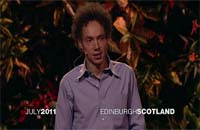 点击观看
点击观看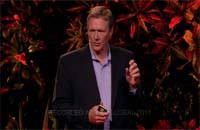 点击观看
点击观看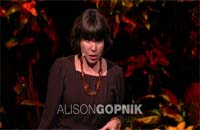 点击观看
点击观看 点击观看
点击观看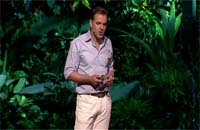 点击观看
点击观看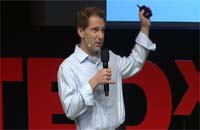 点击观看
点击观看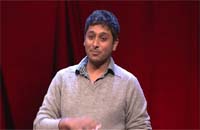 点击观看
点击观看 点击观看
点击观看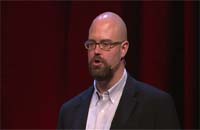 点击观看
点击观看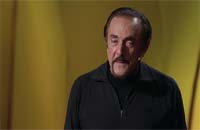 点击观看
点击观看 点击观看
点击观看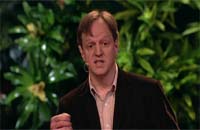 点击观看
点击观看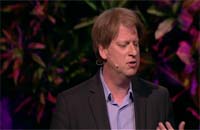 点击观看
点击观看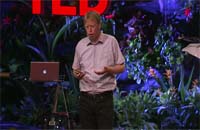 点击观看
点击观看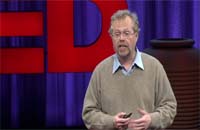 点击观看
点击观看 点击观看
点击观看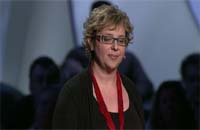 点击观看
点击观看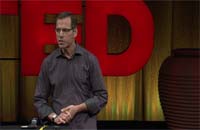 点击观看
点击观看 点击观看
点击观看 点击观看
点击观看 点击观看
点击观看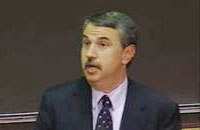 点击观看
点击观看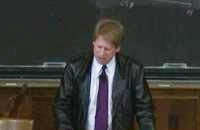 点击观看
点击观看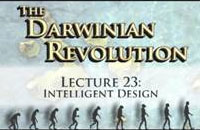 点击观看
点击观看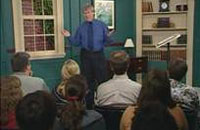 点击观看
点击观看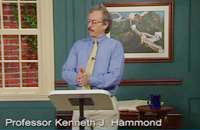 点击观看
点击观看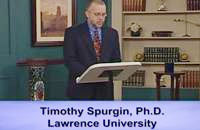 点击观看
点击观看
